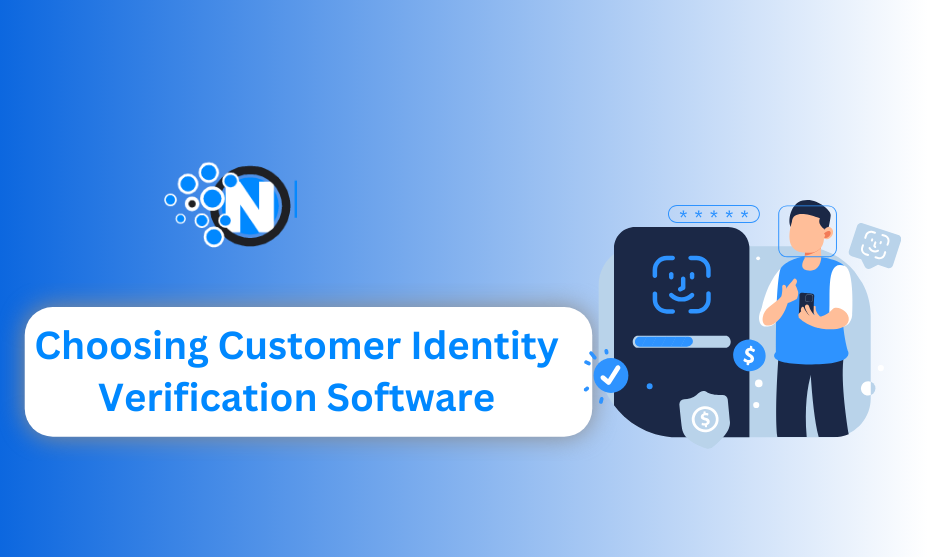Top Mistakes to Avoid When Choosing Customer Identity Verification Software

As more organizations shift online, they feel the importance of having effective customer identification software. As online fraud and data breaches increase, it is essential to identify the customers correctly. However, with different software available for purchase, identifying the right customer identity verification software can be quite complicated. In this article, we have highlighted some major mistakes which should be avoided by businesses when selecting such software.
Understanding Your Needs
Before choosing customer identity verification software, it is important to clearly understand your business’s specific needs and requirements. Regardless of whether you are an e-commerce platform, a financial institution, or are in any industry where identity verification is critical, having your objectives set will facilitate the decision-making process.

Mistakes to Avoid When Choosing Customer Identity Verification Software
1. Neglecting Scalability
The major mistake to avoid is failing to consider scalability when selecting customer identity verification software. Though a given solution can satisfy the current requirements, neglecting future expansion will cause extra expenses and complexities. Find software that is adaptable enough to handle growing user numbers without sacrificing accuracy and speed.
2. Ignoring Smooth Integration
Ignoring smooth interaction with current workflows and systems is another typical error. It is necessary to select customer identity verification software that works flawlessly with your existing infrastructure to minimize implementation interruption for both staff and customers. Think about things like compatibility with your APIs or CRM systems, and assess if specialized technical knowledge is needed for integration.
3. Overlooking Compliance Requirements
Industry-specific and regional compliance standards differ, therefore disregarding legal compliances now could have dire repercussions down the road. Make sure that the customer identification verification software you use complies with all applicable legal requirements, including KYC (Know Your Customer) compliance guidelines and AML (Anti-Money Laundering) regulations. Seek out certificates or accreditations from the vendor as proof of their dedication to compliance.
4. Not Making Data Security a Priority
When handling sensitive information and customer identities, data security is crucial. Unfortunately, while selecting identity verification software, a lot of firms make the error of ignoring the security component. Give top priority to software providers who adhere to international data protection regulations such as GDPR (General Data Protection Regulation), provide end-to-end encryption, safe storage, and conduct regular security assessments. It also helps to have a secure payment gateway.
5. Underestimating User Experience
Customer happiness and retention are greatly increased by a seamless and intuitive experience. When selecting identity verification software, businesses frequently overlook the significance of the user experience in favor of functionality and security capabilities. Find a system that offers multilingual support, a smooth and user-friendly interface, fast response times, and clear directions for document submission procedures.
6. Neglecting Accuracy Rates
Since false positives or negatives can lead to disappointing experiences for both users and businesses, accuracy is essential in customer identity verification. Compare accuracy rates offered by suppliers using statistical reports or case studies while assessing different solutions. A trustworthy customer identity verification program should have low false match rates and high accuracy rates.
7. Failing to Consider Cost-benefit Ratio
Cost is usually a crucial consideration in company decisions, but concentrating only on price may result in features that aren’t as important or in quality compromises. Consider the entire cost-benefit ratio of the various solutions rather than just the price. Consider elements like increased productivity, less manual labor, decreased fraud losses, advantages for compliance, and potential long-term scalability.
8. Disregarding Flexibility in Verification Methods
Different organizations have different needs when it comes to customer identity verification. While some people might prefer more conventional techniques like facial recognition and document verification, others could need more features like voice recognition or biometric authentication. Neglecting the adaptability of verification techniques may restrict your capacity to accommodate changing customer requirements and tastes. Select customer identity verification software that provides a variety of easily customizable verification techniques that may be integrated into your current workflows.
9. Overlooking Customer Support and Maintenance
Choosing trustworthy customer identity verification software is only the first step; continuing maintenance, updates, and support are also necessary to ensure seamless operations. If problems occur or you have trouble implementing the software, you may become frustrated if you don’t pay attention to the degree of customer care that the software seller offers. Seek out suppliers who can guarantee a flawless experience and quickly fix any problems by providing strong technical support, frequent updates, and maintenance services.
10. Not Carrying Out Extensive Vendor Due Diligence
When choosing customer identity verification software, finding the appropriate vendor is crucial. If due research on potential vendors is not done thoroughly, it may result in collaborating with untrustworthy providers who lack the requisite experience or credibility in the market. Prior to signing any contracts, check the credentials of the vendor, find out about their experience, ask for references or case studies from previous customers, look into any affiliations they may have with reputable businesses (if any), and determine whether they can handle your particular set of needs.
11. Not Making Efficiency and Speed a Priority
In the current digital world, customers anticipate prompt and effective procedures. When selecting customers identity verification software, putting speed and efficiency last might lead to a bad user experience, increased abandonment rates, and missed business opportunities. Seek out methods that provide quick response times without sacrificing precision. To guarantee a seamless user experience, take into account elements like turnaround times for verification results, automated processes, and real-time verification capabilities.
12. Overlooking Adaptability to Changing Security Threats
The challenges to cybersecurity are always changing because hackers are coming up with new ways to take advantage of weaknesses. It is important to select customer identity verification software that can evolve with evolving security risks. Determine whether the vendor takes a proactive stance in enhancing its security features and how often they update their software in response to new threats. Businesses can minimize risks and protect the identities and personal data of their customers by taking this factor into account.
13. Neglecting User-specific Requirements
Certain firms or industries could have particular needs when it comes to confirming the identities of their customers. Ignoring these particular requirements can result in errors or inefficient verifications. Let’s take an example where your company provides services in a regulated sector like healthcare or law. In that instance, you could want a solution that conforms with data privacy and security laws unique to your sector. Choose customer identity verification software that complies with any specific criteria or protocols specific to your sector.
Final Thoughts
Businesses nowadays must select the best customer identity verification software to successfully weaken fraudsters and protect important data. Businesses can ensure that their decisions are tailored to their unique requirements, protect their brand’s reputation, and ensure a seamless customer experience by avoiding common mistakes mentioned in this blog post.




